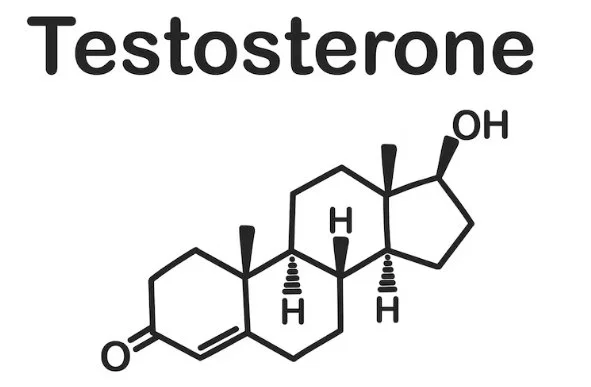Testosterone and Your Bone Density
A Functional Medicine Perspective
Bone health is a crucial part of overall wellness, yet it often goes unnoticed until issues arise. One key player in maintaining healthy bones is testosterone, a hormone typically associated with male traits but essential for both men and women. From a functional medicine perspective, understanding the role of testosterone in bone density can offer insightful strategies for preventing and treating bone-related issues.
Understanding Bone Density
Bone density refers to the amount of bone mineral in bone tissue, which measures the strength and health of bones. Peak bone mass is usually reached in the early 20s, after which bone density can start to decline. This natural decrease can lead to conditions like osteopenia and osteoporosis, increasing the risk of fractures.
The Role of Testosterone in Bone Health
Testosterone plays a crucial role in bone health by influencing bone formation and resorption. Here's how testosterone helps maintain strong bones:
1. Bone Formation: Testosterone promotes the activity of osteoblasts, the cells responsible for bone formation. Higher levels of testosterone enhance the production of new bone tissue, increasing bone density.
2. Bone Resorption: Osteoclasts are cells that break down bone tissue. Testosterone helps regulate their activity, preventing excessive bone resorption. This balance is essential for maintaining bone density.
3. Calcium Absorption: Testosterone improves calcium absorption in the intestines, ensuring enough calcium is available for bone mineralization.
Testosterone Deficiency and Bone Density
A deficiency in testosterone can lead to significant bone health issues. Both men and women can experience low testosterone levels, especially as they age. Conditions like hypogonadism in men and menopause in women can drastically reduce testosterone levels, leading to decreased bone density.
Functional Medicine Approach to Optimizing Testosterone Levels
From a functional medicine perspective, addressing low testosterone involves a holistic approach, including lifestyle changes, nutrition, and targeted supplementation.
1. Lifestyle Modifications
Exercise: Weight-bearing and resistance exercises are beneficial for increasing testosterone levels and improving bone density. Regular physical activity stimulates bone formation and helps maintain muscle mass, which supports bone health.
Sleep: Adequate sleep is essential for hormone production, including testosterone. Poor sleep quality and duration can negatively impact testosterone levels.
2. Nutrition
Balanced Diet: A diet rich in nutrients that support bone health and testosterone production is crucial. This includes adequate protein, healthy fats, and micronutrients such as vitamin D, calcium, and magnesium.
Healthy Fats: Essential fats, particularly omega-3 fatty acids, are vital for hormone production. Include sources like fish, flaxseeds, and walnuts in your diet.
Zinc and Vitamin D: These nutrients are directly involved in testosterone production. Ensure sufficient intake through foods or supplements as needed.
3. Targeted Supplementation
DHEA: Dehydroepiandrosterone (DHEA) is a precursor to testosterone. Supplementing with DHEA can support the body's natural testosterone production.
Herbal Support: Herbs such as ashwagandha, fenugreek, and tribulus terrestris have been shown to support healthy testosterone levels.
Monitoring and Testing
Regular monitoring of testosterone levels and bone density is essential for assessing the effectiveness of any interventions. Functional medicine practitioners often use comprehensive hormone panels and bone density scans to tailor personalized treatment plans.
Conclusion
Testosterone plays a crucial role in maintaining bone density, and a functional medicine approach offers a holistic way to support healthy testosterone levels. By focusing on lifestyle modifications, nutrition, and targeted supplementation, you can enhance bone health and prevent bone-related disorders. Whether you're addressing testosterone deficiency or looking to optimize bone health, a personalized and integrative approach can make a significant difference in your overall well-being.

